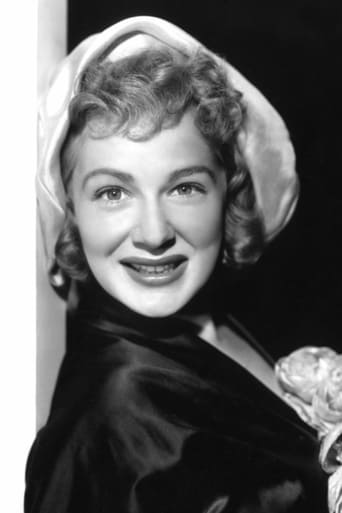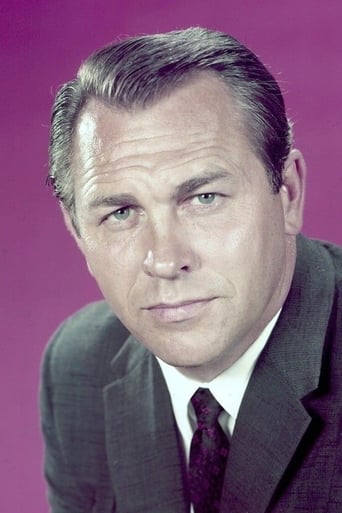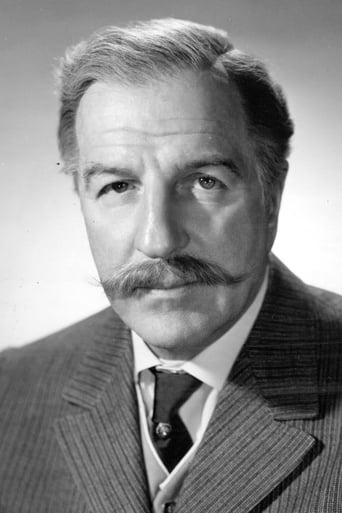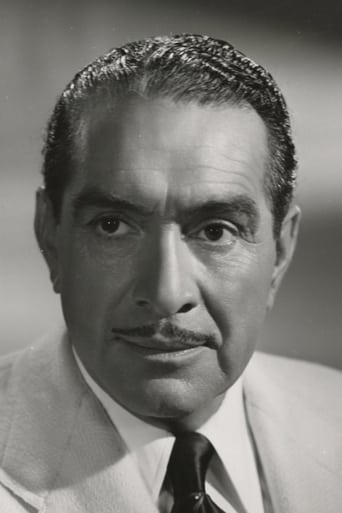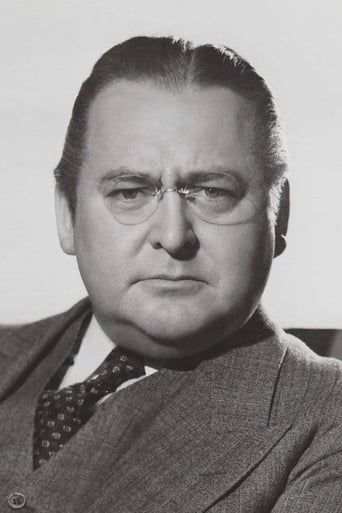Laikals
The greatest movie ever made..!
AniInterview
Sorry, this movie sucks
AshUnow
This is a small, humorous movie in some ways, but it has a huge heart. What a nice experience.
Aneesa Wardle
The story, direction, characters, and writing/dialogue is akin to taking a tranquilizer shot to the neck, but everything else was so well done.
JohnHowardReid
The TRUE STORY: It was a day of mixed blessings for Phoebe Mozee when she first met up with Bill Cody, proprietor of a Wild West Show. On the one hand, she found everlasting fame as the star of his show. On the other hand, Cody continually borrowed money from her or deferred her salary as, due to his mismanagement, the Wild West Show plunged from one financial crisis to another. Mozee and her husband, a former sharpshooter named Frank Butler who gave up his own career to manage hers, made many attempts to break with Cody. Finally Fate took a hand: Phoebe Mozee was critically injured when Cody's special train was wrecked. She lingered on for many years, a pitiful pain- wracked shadow, until Death eventually released her in 1926. Her husband, Frank Butler, who had lovingly cared for her during her lengthy illness, and who had often declared he couldn't live without her, indeed died of grief a few days later.That, my friends, is but a flimsy precis of the true story of Annie Oakley. But it seems to me, as a writer, that anyone who couldn't weave a vividly moving play and film out of these elements, has no business writing at all! But here, instead of the real Annie Oakley and the real Buffalo Bill, we are handed a lot of raucous, garish and/or cloying clichés. The characters of Oakley and Cody are as far removed from real life as possible. I can only conclude that the writers deliberately decided to make it easy for themselves by presenting characters that were in all respects exactly opposite to the truth. The real Buffalo Bill, so beset with his own importance and glorification, was a faker and fraud on such a large scale that he managed to create a legend, despite his own breathtaking incompetence. The real Annie was demure and unassertive, uneducated yet eager to learn, unsophisticated but no fool, reticent rather than garrulous, even when poor always extremely neat and tidy in appearance, possessing a quiet assurance in her skill as a sure- shot. (Well, almost sure. One day she shot at 5,000 glass balls, tossed into the air. She missed 228 times).NOTES: The film commenced under Busby Berkeley's direction with Judy Garland in the title role and Frank Morgan as Buffalo Bill. The film closed down after Garland became ill (she had already recorded all the songs). Betty Hutton was borrowed from Paramount to replace Garland. Frank Morgan died on 18 September 1949. Louis Calhern was then brought in and shooting recommenced under George Sidney. Garland version shooting from 7 March to 21 May 1949. Hutton version shooting from 10 October to 16 December 1949, with one day of re-takes on 6 February 1950. The stage musical opened on Broadway at the Imperial Theatre on 16 May 1946 and ran a phenomenal 1,147 performances. Ethel Merman and Ray Middleton starred. Dolores Gray starred in the London production which did even better, running 1,304 performances.Negative cost: $3,768,785, including $1,877,528 spent on the abandoned Judy Garland version. Initial domestic gross, only $4,650,000, although placing the film equal third at the U.S./Canadian box-office for 1950, still meant that Metro was up for a whopping loss of around $3,000,000. Fortunately, overseas rentals plus a domestic re-issue in 1956-57 increased the studio's total gross return to $8,010,000.Although Conrad Salinger's orchestrations made a major contribution to the score, only Adolph Deutsch and Roger Edens were awarded the Academy Award for Best Scoring of a Musical Picture. (Music co- coordinator Lela Simone deserved recognition too). Annie defeated Cinderella, I'll Get By, Three Little Words and West Point Story. Number 3 at U.K. ticket windows, number 7 in Australia.COMMENT: A disappointment. Too long, too talky, too loud. Betty Hutton plays the title role in a stridently raucous manner; Howard Keel, in his first American film, is a tuneful but colorless Frank Butler; and the support players tend to act with all stops out. The script would be improved by considerable trimming. It seems to go on and on, shuffling long-windedly from one dreary anti-climax to the next. The direction and other production credits are so smooth all the vitality has gone right out of them. The production numbers are staged in a dull and uninteresting fashion. Only the songs remain — and a great deal of their appeal has been whittled away by loud and cumbersome orchestrations. Maybe I'm a bit hard on this movie. I'd love to see it again. But in all the thirty-plus years that I subscribed to Turner Classic Movies, "Annie Get Your Gun" was never scheduled.
weezeralfalfa
I have fond memories of this film, as it was our senior class play, with a great, but not as great, cast. Not surprisingly, this film version of the Irving Berlin-scored Broadway play of the same title was among the top box office draws of '50, and clearly is the pinnacle of the film career of bombastic star Betty Hutton, although she subsequently was the female lead in "The Greatest Show on Earth", which was voted the Oscar and Golden Globe awards for best film of '52. Initially, there were a number of problems settling on who was going to play Annie, and Buffalo Bill, and who was going to be the director. Judy Garland was slated to be Annie, with Frank Morgan as BB, thus reteaming 2 of the stars of "The Wizard of Oz". In addition, Busby Berkeley, who had directed 3 of the 4 Mickey & Judy musicals was the original director. Well, as it turned out, none of these 3 got very far into making this film. As with the 4th Mickey & Judy musical, Judy clashed with Busby. Hence, it was again decided that he was the more expendable. But, Judy's tardiness continued, thus she was soon fired, as well. Morgan died just as filming was getting underway. Garland's contemplated replacements included Doris Day, Betty Grable, and Betty Hutton: all vivacious blonds, with musical and comedic talent. Unfortunately, all were tied to other studios. MGM was able to strike a deal with Betty's Paramount studios, hence she ended up with the role. DD was greatly disappointed, but eventually was given the consolation prize of "Calamity Jane", with a rather similar role, with Keel again the male lead. This was only Keel's second film role, and his first that featured him singing. He was tall, quite handsome, with a great strong baritone voice, thus scripting Betty to mug insanely when she encounters him in the early going. Keel had had extensive experience starring in some of the top Broadway musicals, including "Oklahoma". Nonetheless, Betty got more of the solos, with them doing several impressive back and forth duets, as in "They Say It's Wonderful" and "Anything You Can Do". In a later interview, Betty reported that most of the MGM crew, including Keel, strongly resented her taking Judy's place and treated her as a virtual outcast, even though at a much later reunion of the surviving cast members, she was praised for her performance. Keel, of course, would go on to star in several additional high profile musicals, including : "Showboat", "Kiss Me Kate", "Seven Brides for Seven Brothers", as well as "Calamity Jane".Your opinion of this film will probably largely hinge on your perception of Betty. Most people seem to either love her or hate her, with few in between. I'm obviously in the first group. This was clearly her masterpiece, not to discount Keel's and Berlin's contributions. Comparing the outtakes of Judy's versions of two of the singing scenes, I hope you will agree that Betty's versions are clearly more interesting, with her exaggerated expressions and mannerisms. Some complain that she grossly overacted. But that was just her style of being funny and dramatic, as is true of most comedians. Some complain about her singing. True, occasionally her voice was too weak, or often included an intentional raucous component, but that was to emphasize her mood or enthusiasm. She could put over rousing songs , like "There's No Business Like Show Business", with great gusto and expressiveness. She could also make weepy ballads sound convincing. One particularly memorable scene has her clownishly imitating Keel's prior "The Girl That I Marry", then dissolving into a weeping continuation of the song, as she compares herself with his stated ideal in a wife. Who else could have done that as effectively?Yes, the 'Indians' were sometimes portrayed as 'wooden Indians' or as howling savages. But, the staid Sitting Bull(the usually humorous J. Carrol Naish), gave her sound advice(and a defective rifle) in her pursuit of Frank Butler(Keel). Some may see the idea that a woman should let her guy feel superior to herself as sexist. But, especially in the times of the real Annie, women were supposed to generally stay in the background. Even today, this is, unfortunately, often sound advice. Ironically, the real Frank Butler was an exception to this rule. Women who are unusually talented or ambitious need to be smart in picking a man who is comfortable in supporting them. Often, an older man(such as Frank), who has already achieved success or fame and is in a position to further her career is the right choice.Of course, as in the case of the '36 "Annie Oakley", considerable liberty was taken with the details of the historical Frank & Annie relationship. For instance, Annie didn't become Frank's stage shooting partner until some years after they married, and they didn't join BB's show until 10 years later! Annie was nothing like the flamboyant Betty, nor Ethel Merman, in the Broadway version!. She was a dutiful conservative Quaker. Actually, BB sometimes also featured another young shooting-trick riding sensation, in Lillian Smith, who much more resembled Betty's version of Annie, in being flamboyant and a flirt!Other films you may enjoy from this era that feature women in traditionally men's roles include: "Comanche Territory", "Against All Flags", "The Ballad of Josie", "Calamity Jane", "Montana Belle",and "Montana"
peacham
We all are aware by now that Judy Garland was to star in the film and that she was replaced by Hutton after several days shooting. As great a musical star as Garland was, this may have been a good thing. Betty Hutton shines in the title role..brassy,emotional and full of life.Howard Keel,fresh from his London success in "Oklahoma" is sheer perfection as Frank Butler, stealing scenes with such numbers as "My Defenses are Down" and "The Girl That I Marry".Benay Venuta also gets her share of scene stealing as Frank's flamboyant assistant Dolly Tate, and Keenan Wynn has just the right amount of huckster in him to make Charlie Davenort memorable.J. Carrol Nash as Sitting Bull has some of the films funniest moments, and Louis Calhern, stepping in for the late Frank Morgan, handles Buffalo Bill Cody with the skill of a great character actor.other musical highlights are "Doing What Comes Naturally" belted with gusto by Hutton, "Col. Buffalo Bill" smartly sung by Wynn,Venuta & Keel, and the famous "No Business Like Show Business" featuring Wynn,Calhern & Keel.This is truly one of the best stage to screen adaptations to come along.
froberts73
I have to agree with the guys and gals who praise Betty Hutton to the skies, Irving Berlin's blue ones. I always enjoy Garland, but no one could have handled the role of Annie Oakley better than Hutton. I also enjoyed Barbara Stanwyck as Annie Oakley in the black-white non-musical version.In AGYG, the songs fitted beautifully with the wonderful plot, especially the "Anything You Can Do -" number with Keel and Hutton giving it their all.All around praise to Irving Berlin for so many great songs in one package. They were particularly impressive when Hutton was singing them. Her sister, Marion, of course, did her vocalizing with the Glenn Miller Orchestra. He wanted one of the sisters and settled on lookalike Marion, feeling that sis, Betty, was too energetic.While "Annie Get Your Gun" had its production problems, it's the end result that counts, and the end result is one outstanding musical. The grand finale with all those horses and people was straight out of Busby Berkeley, although his crew had prettier legs - fewer of them, but prettier. However, you couldn't ride them."Annie Get Your Gun" and aim at this reviewer. Pull!!



